Conventional anaerobic digestion (AD) technology continues to be out of reach for most farmers in Ireland. The high capital investment coupled with decades of Government inaction and lack of an adequate support scheme has caused Ireland to lag behind many other European countries when it comes to AD adoption.
Organisations such as the Irish Bioenergy Association (IrBEA) and the Composting and Anaerobic Digestion Association of Ireland (Cré) have made repeated calls for a biogas support scheme, which is required to kickstart the sector.
In a recent policy document published by the above organisations, they reiterated the need for Government support to bridge the gap between the market price for natural gas and the cost of production of biogas, especially for large- to medium-sized AD plants.
However, IrBEA is seeking to develop another model for AD in Ireland, one which focuses on small-scale anaerobic digesters producing energy for on-farm use. This was the focus of a recent series of workshops organised by the organisation and Teagasc.
The Irish Farmers Journal spoke to project manager Noel Gavigan of IrBEA about the new small biogas demonstration project.
The project is funded through the European Innovation Partnership and aims to stimulate the deployment of innovative on-farm small-scale biogas production by providing support and a capital contribution to three demonstration projects.
Listen to the interview here:
Listen to "Government support scheme for biogas needed to kick start sector - IrBEA" on Spreaker.
Noel explains that the project is seeking to see how small-scale AD can fit in with a working farm without affecting current operations. This EIP project has a number of key objectives:
Develop the capacity of technology providers in delivery of farm-scale biogas production.Demonstrate compliance with sustainability criteria in the context of the EU renewable energy directive.Raise awareness among the farming community of the increasing challenges of addressing climate change.Demonstrate that the results are widely deployable.The on-farm demonstration AD plants will be fed farm waste and possibly supplemented with grass or energy crops to produce biogas. It is envisaged that the biogas will be consumed on the farm for electricity and/or heat, replacing all or some of the need for imported energy generated from fossil fuels.
This will in turn lower the carbon footprint of the farm and provide an enhanced fertiliser in the form of digestate for on-farm use. It is envisaged that the use of digestate will reduce the farm's requirement for artificial fertiliser.
Farm types
The project is open to all farming enterprises but those which have an on-farm waste stream and a relatively high energy demand are most desirable.
An example of viable project may be a dairy farm using cow slurry to produce biogas for use onsite for milking operations (hot washing, milk cooling etc).
It is estimated that of the 40m tonnes of cattle slurry produced per year, around 500,000t is likely to be easily available for AD.
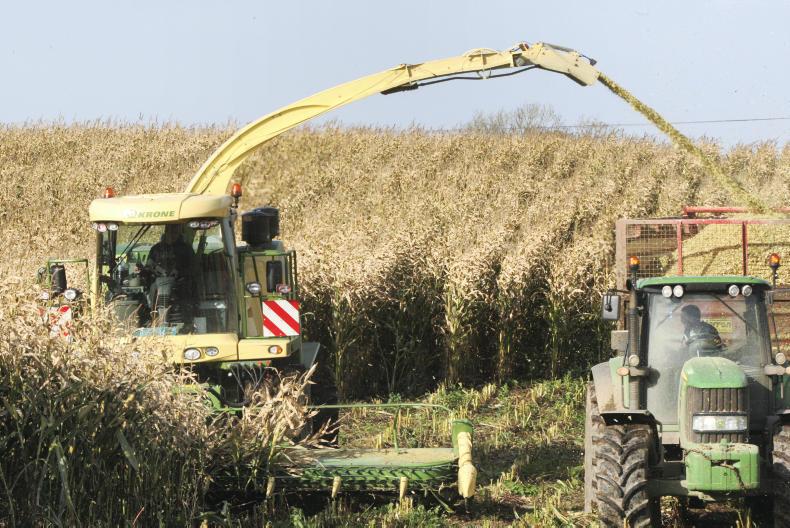
Maize is crop well suited for anaerobic digestion.
Ireland is also particularly well suited to growing crops such as grass, maize, beet, triticale and other cereals due to our climate, so the project does not exclude tillage farms.
With that said, there are likely to be stringent sustainability criteria for feedstock procurement under the EU Renewable Energy Directive II (RED II). This may place limits on the transport distance, change in land use and inputs required to produce feedstock for biogas production, particularly when used in the transport industry.
Funding
Capital funding of around €500,000 is available to assist in the development of an estimated three AD plants. Up to 60% of the capital cost and up to 100% of the advice, research and consultancy cost can be funded through he project.
However, Noel stresses that they may be able to assist with the development of other projects, even ones which may not meet the criteria for capital funding, so he is urging everyone who is interested to apply.
Project timeline
Farmers are being urged to fill out an expression of interest form, the deadline for which is 1 November.
After an initial farm evaluation, viable projects will be invited to technical workshops. Applicants must then complete a detailed submission for further evaluation.
An evaluation committee will rank each farm in order of suitability and deploy-ability before awarding the capital grants.

Medium- to large-scale anaerobic digestion plants will require Government support to help their viability.
Once selected, a project operational group will develop detailed plans with the farmers before proceeding to the construction and commissioning phase. Once operational, a series of demonstration events will be held on those plants.
Project outputs
One of the key aims of this project is to demonstrate the viability of developing on-farm small-scale AD plants on Irish farms. The project will show the benefits to the agricultural industry such as lowering emissions, improving farm viability and improving utilisation of nutrients.
These demonstrations will serve as proof of concept may help shape the direction of future policy and funding mechanisms in order to develop the sector further.
Expression of interest
The project will run for four years and is currently in stage one out of six.
Any farmer who may be interested in getting involved with this project can fill out an expression of interest form found here.
More information on the project can be found here.
Read more
Listen: Government support scheme for biogas needed to kickstart sector – IrBEA
Farm grass and slurry central to €40m biogas proposal
First farm biogas flows to national grid
Conventional anaerobic digestion (AD) technology continues to be out of reach for most farmers in Ireland. The high capital investment coupled with decades of Government inaction and lack of an adequate support scheme has caused Ireland to lag behind many other European countries when it comes to AD adoption.
Organisations such as the Irish Bioenergy Association (IrBEA) and the Composting and Anaerobic Digestion Association of Ireland (Cré) have made repeated calls for a biogas support scheme, which is required to kickstart the sector.
In a recent policy document published by the above organisations, they reiterated the need for Government support to bridge the gap between the market price for natural gas and the cost of production of biogas, especially for large- to medium-sized AD plants.
However, IrBEA is seeking to develop another model for AD in Ireland, one which focuses on small-scale anaerobic digesters producing energy for on-farm use. This was the focus of a recent series of workshops organised by the organisation and Teagasc.
The Irish Farmers Journal spoke to project manager Noel Gavigan of IrBEA about the new small biogas demonstration project.
The project is funded through the European Innovation Partnership and aims to stimulate the deployment of innovative on-farm small-scale biogas production by providing support and a capital contribution to three demonstration projects.
Listen to the interview here:
Listen to "Government support scheme for biogas needed to kick start sector - IrBEA" on Spreaker.
Noel explains that the project is seeking to see how small-scale AD can fit in with a working farm without affecting current operations. This EIP project has a number of key objectives:
Develop the capacity of technology providers in delivery of farm-scale biogas production.Demonstrate compliance with sustainability criteria in the context of the EU renewable energy directive.Raise awareness among the farming community of the increasing challenges of addressing climate change.Demonstrate that the results are widely deployable.The on-farm demonstration AD plants will be fed farm waste and possibly supplemented with grass or energy crops to produce biogas. It is envisaged that the biogas will be consumed on the farm for electricity and/or heat, replacing all or some of the need for imported energy generated from fossil fuels.
This will in turn lower the carbon footprint of the farm and provide an enhanced fertiliser in the form of digestate for on-farm use. It is envisaged that the use of digestate will reduce the farm's requirement for artificial fertiliser.
Farm types
The project is open to all farming enterprises but those which have an on-farm waste stream and a relatively high energy demand are most desirable.
An example of viable project may be a dairy farm using cow slurry to produce biogas for use onsite for milking operations (hot washing, milk cooling etc).
It is estimated that of the 40m tonnes of cattle slurry produced per year, around 500,000t is likely to be easily available for AD.

Maize is crop well suited for anaerobic digestion.
Ireland is also particularly well suited to growing crops such as grass, maize, beet, triticale and other cereals due to our climate, so the project does not exclude tillage farms.
With that said, there are likely to be stringent sustainability criteria for feedstock procurement under the EU Renewable Energy Directive II (RED II). This may place limits on the transport distance, change in land use and inputs required to produce feedstock for biogas production, particularly when used in the transport industry.
Funding
Capital funding of around €500,000 is available to assist in the development of an estimated three AD plants. Up to 60% of the capital cost and up to 100% of the advice, research and consultancy cost can be funded through he project.
However, Noel stresses that they may be able to assist with the development of other projects, even ones which may not meet the criteria for capital funding, so he is urging everyone who is interested to apply.
Project timeline
Farmers are being urged to fill out an expression of interest form, the deadline for which is 1 November.
After an initial farm evaluation, viable projects will be invited to technical workshops. Applicants must then complete a detailed submission for further evaluation.
An evaluation committee will rank each farm in order of suitability and deploy-ability before awarding the capital grants.

Medium- to large-scale anaerobic digestion plants will require Government support to help their viability.
Once selected, a project operational group will develop detailed plans with the farmers before proceeding to the construction and commissioning phase. Once operational, a series of demonstration events will be held on those plants.
Project outputs
One of the key aims of this project is to demonstrate the viability of developing on-farm small-scale AD plants on Irish farms. The project will show the benefits to the agricultural industry such as lowering emissions, improving farm viability and improving utilisation of nutrients.
These demonstrations will serve as proof of concept may help shape the direction of future policy and funding mechanisms in order to develop the sector further.
Expression of interest
The project will run for four years and is currently in stage one out of six.
Any farmer who may be interested in getting involved with this project can fill out an expression of interest form found here.
More information on the project can be found here.
Read more
Listen: Government support scheme for biogas needed to kickstart sector – IrBEA
Farm grass and slurry central to €40m biogas proposal
First farm biogas flows to national grid






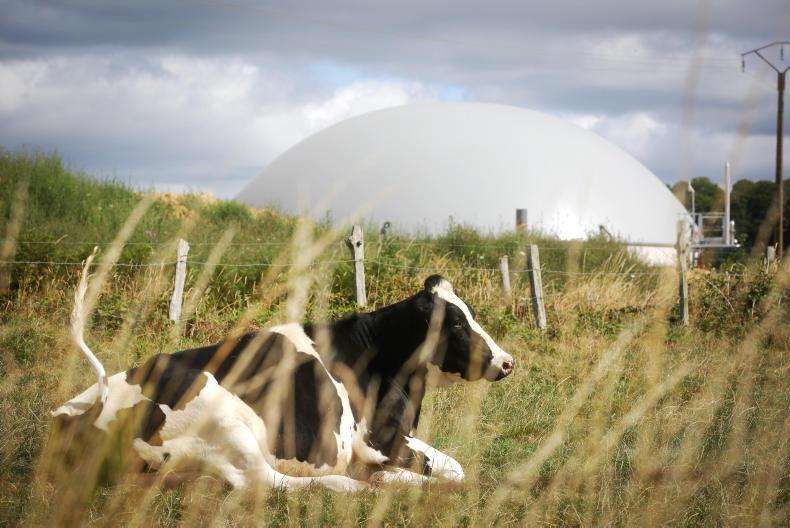
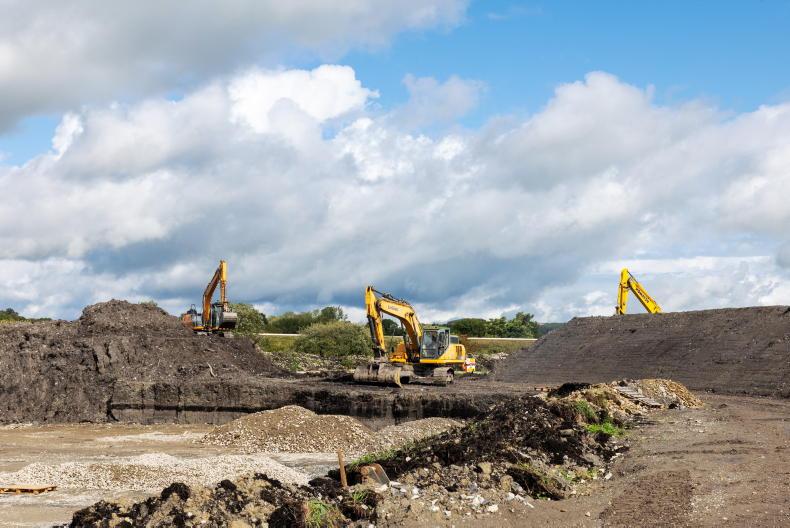

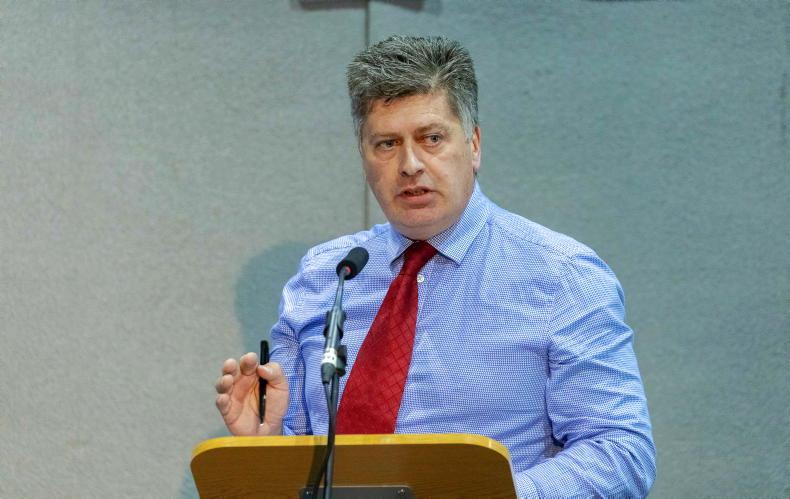
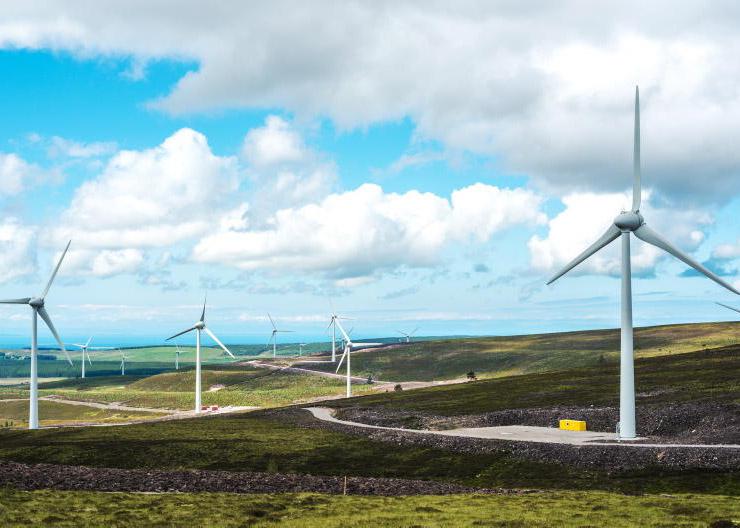

SHARING OPTIONS